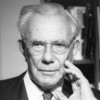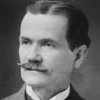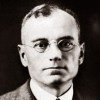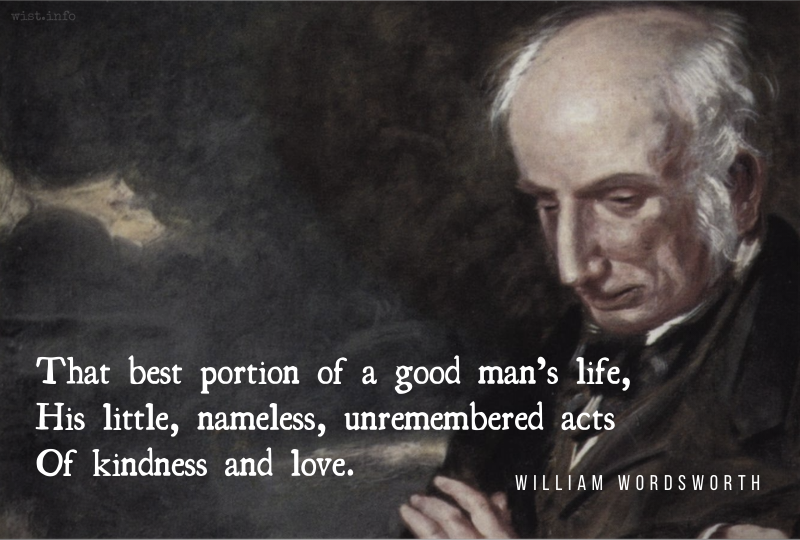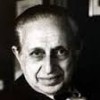The awareness of the ambiguity of one’s highest achievements (as well as one’s deepest failures) is a definite symptom of maturity.
Paul Tillich (1886-1965) American theologian and philosopher
Quoted in Time (1963-05-17)
(Source)
Speech given at the 40th Anniversary Dinner for Time, reported in the following week's magazine.
Quotations about:
significance
Note not all quotations have been tagged, so Search may find additional quotes on this topic.
A hole is nothing at all, but you can break your neck in it.
Austin O'Malley (1858-1932) American ophthalmologist, professor of literature, aphorist
Keystones of Thought (1914)
(Source)
It is characteristic of all deep human problems that they are not to be approached without some humor and some bewilderment.
Freeman Dyson (1923-2020) English-American theoretical physicist, mathematician, futurist
Disturbing the Universe, ch. 1 (1979)
(Source)
Few bothersome things are important enough to bother with. It is folly to take to heart what you should turn your back on. Many things that were something are nothing if left alone, and others that were nothing turn into much because we pay attention to them.
[Pocas cosas de enfado se han de tomar de propósito, que sería empeñarse sin él. Es trocar los puntos tomar a pechos lo que se ha de echar a las espaldas. Muchas cosas que eran algo, dejándolas, fueron nada; y otras que eran nada, por haber hecho caso de ellas, fueron mucho.]Baltasar Gracián y Morales (1601-1658) Spanish Jesuit priest, writer, philosopher
The Art of Worldly Wisdom [Oráculo Manual y Arte de Prudencia], § 121 (1647) [tr. Maurer (1992)]
(Source)
(Source (Spanish)). Alternate translations:
Few of those things that occasion trouble, are to be minded: else we shall torment our selves much in vain. It's to act the clean contrary way, to lay that to heart, which we should throw behind our backs. Many things that were of some consequence, have signified nothing at all, because men troubled not themselves about them; and others which signified nothing, have become matters of importance, because of the value that was put upon them.
[Flesher ed. (1685)]
Troublesome things must not be taken too seriously if they can be avoided. It is preposterous to take to heart that which you should throw over your shoulders. Much that would be something has become nothing by being left alone and what was nothing has become of consequence by being made much of.
[tr. Jacobs (1892)]
To convert petty annoyances into matters of importance, is to become seriously involved in nothing. It is to miss the point, to carry on the chest what has been cast from the shoulders. Many things which were something, by being left alone became nothing; and others which were nothing, became much because messed into.
[tr. Fischer (1937)]
Keep cool: it will be all one a hundred years hence.
Ralph Waldo Emerson (1803-1882) American essayist, lecturer, poet
“Montaigne; or, The Skeptic,” Representative Men, Lecture 4 (1850)
(Source)
Life is much too important a thing ever to talk seriously about it.
Oscar Wilde (1854-1900) Irish poet, wit, dramatist
Vera; or, The Nihilists, Act 2 [Prince Paul] (1881)
(Source)
Almost always paraphrased, "Life is too important to be taken seriously."
In Lady Windermere's Fan, Act 2 (1892), he recycled the line as "Life is far too important a thing ever to talk seriously about it."
Also (mis)attributed to G.K. Chesterton. More discussion of this quotation: Life Is Too Important To Be Taken Seriously – Quote Investigator.
Man seeks objectives that enable him to convert the attainment of every goal into a means for the attainment of a new and more desirable goal. The ultimate objective in such a sequence cannot be obtainable; otherwise its attainment would put an end to the process. An end that satisfies these conditions is an ideal …. Thus the formulation and pursuit of ideals is a means by which to put meaning and significance into his life and into the history of which he is part.
However accurately we may determine the “facts” of history, the facts themselves and our interpretations of them, and our interpretation of our own interpretations, will be seen in a different perspective or a less vivid light as mankind moves into the unknown future. Regarded historically, as a process of becoming, man and his world can obviously be understood only tentatively, since it is by definition something still in the making, something as yet unfinished. Unfortunately for the “permanent contribution” and the universally valid philosophy, time passes; time, the enemy of man as the Greeks thought; to-morrow and to-morrow and to-morrow creeps in this petty pace, and all our yesterdays diminish and grow dim: so that, in the lengthening perspective of the centuries, even the most striking events (the Declaration of Independence, the French Revolution, the Great War itself; like the Diet of Worms before them, like the signing of the Magna Carta and the coronation of Charlemagne and the crossing of the Rubicon and the battle of Marathon) must inevitably, for posterity, fade away into pale replicas of the original picture, for each succeeding generation losing, as they recede into a more distant past, some significance that once was noted in them, some quality of enchantment that once was theirs.
Carl L. Becker (1873-1945) American historian
“Everyman His Own Historian” (3), speech, American Historical Association, Minneapolis (29 Dec 1931)
(Source)
For want of a naile the shoe is lost, for want of a shoe the horse is lost, for want of a horse the rider is lost.
George Herbert (1593-1633) Welsh priest, orator, poet.
Jacula Prudentum, or Outlandish Proverbs, Sentences, &c. (compiler), # 499 (1640 ed.)
(Source)
That best portion of a good man’s life,
His little, nameless, unremembered acts
Of kindness and love.William Wordsworth (1770-1850) English poet
“Lines Composed a few Miles above Tintern Abbey” (13 Jul 1798)
(Source)
Often paraphrased into a sentence, e.g., "The best portion of a good man's life is his little, nameless, unremembered acts of kindness and of love."
I cannot believe that the purpose of life is to be “happy.” I think the purpose of life is to be useful, to be responsible, to be honorable, to be compassionate. It is, above all, to matter: to count, to stand for something, to have made some difference that you lived at all.
Leo C. Rosten (1908-1997) Polish-American author and political scientist
“Credo,” Passions and Prejudices (1978)
(Source)
This appears to be the final iteration of a thought that Rosen used on numerous occasions. In "On Finding Truth: Abandon the Strait Jacket of Conformity," Speech, National Book Awards, New York City, as reprinted in The Sunday Star (8 Apr 1962):
The purpose of life is not to be happy -- but to matter, to be productive, to be useful, to have it make some difference that you lived at all.
In a later essay, "Words To Live By: The Real Reason For Being Alive," This Week Magazine (20 Jan 1963):
THE PURPOSE OF LIFE is not to be happy. The purpose of life is to matter, to be productive, to have it make some difference that you lived at all. Happiness, in the ancient, noble sense, means self-fulfillment — and is given to those who use to the fullest whatever talents God or luck or fate bestowed upon them. Happiness, to me, lies in stretching, to the farthest boundaries of which we are capable, the resources of the mind and heart.
In "The Myths by Which We Live," The Rotarian (Sep 1965):
Finally there is the myth which gives me the greatest pain: the myth that the purpose of life is happiness, and that you ought to have fun, and that your children ought to have fun. Where was it written that life is so cheap? Where was it written that life is, or should be, or can ever be free of conflict and effort and deprivation and sacrifice? [...] [T]he purpose of life is not to be happy at all. It is to be useful, to be honorable. It is to be compassionate. It is to matter, to have it make some difference that you lived.
A variation of this quotation is misattributed to Ralph Waldo Emerson. More discussion of this quotation (including a shout-out to WIST for some of this research) here: The Purpose of Life Is Not To Be Happy But To Matter – Quote Investigator.
If you don’t play to win, why bother to keep score?
Adolph Rupp (1901-1977) American college basketball coach
Comment (11 Jun 1958)
Rupp frequently returned to this phrase, usually in response to someone quoting to him from Grantland Rice's "Alumnus Football" (paraphrased, "It doesn't matter whether you win or lose, but how you play the game").
Variations:
Rupp wasn't necessarily the originator of this thought. Clair Bee, another US college basketball coach, said during the CCNY Point Shaving Scandal that ended his career, "If the kids aren't playing for keeps, why keep score?" (20 Feb 1951).
- "If it doesn't matter who wins or loses, then what in the hell is that scoreboard doing up there?"
- "If it doesn't matter, then why does every school have a scoreboard? If it doesn't matter who wins why do 25,000 football fans follow a team 400 miles and sit in eight inches of snow to watch the game?" [Source]
- "If winning isn't so important, why do they keep score?" [Source]
Sometimes attributed to Vince Lombardi.
More discussion of this quotation: The Big Apple: “If winning isn’t important, why keep score?”

